With consumers valuing sustainability more than ever, the wine industry is working to keep up with the times and follow suit. But in an era when greenwashing is prevalent, it can be tough to decipher which wineries are actually practicing what they preach and working toward creating a more eco-friendly world.
While there are many brands with unique and meaningful missions to honor the earth on which their grapes are grown, some brands have stood out as being at the forefront of sustainability — with bold missions, unique techniques, and dedicated, years-long efforts. Here are six eco-friendly wineries that have caught our attention with their missions to better the environment.
The Hidden Sea
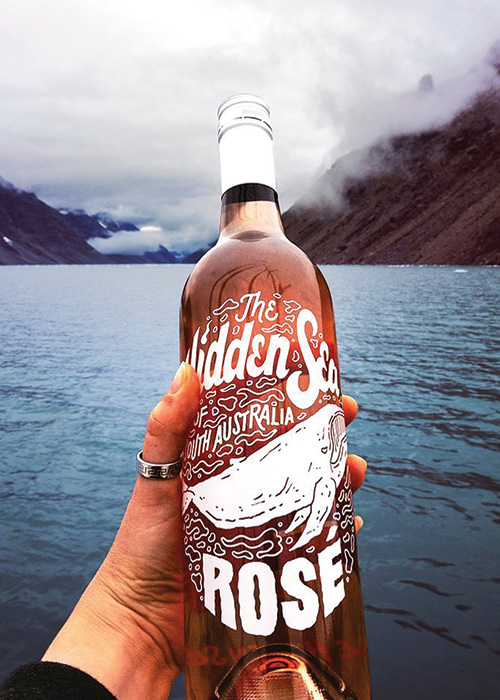
Australian winery The Hidden Sea is using its red blend, Chardonnay, and rosé to preserve ocean life. The brand, which partners with winemakers across the continent, has pledged to remove and recycle 10 plastic bottles (or plastic items of an equivalent weight) from oceans and rivers for every bottle of wine it sells. Its goal? To remove 1 billion bottles from the ocean by 2030. The winery is already well on its way, having removed over 10 million bottles from bodies of water in less than two years. Additionally, The Hidden Sea’s wines are 100 percent vegan, and its facilities are entirely solar powered. The winery is also working toward achieving carbon neutrality by the end of this calendar year.
Horsepower Vineyards
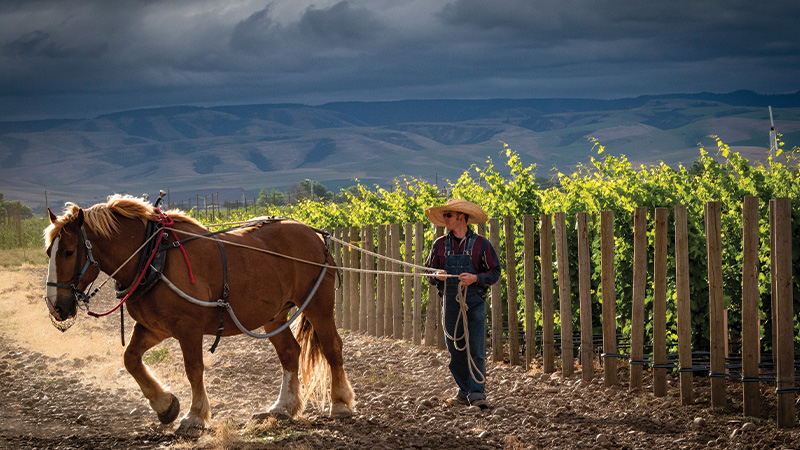
In celebration of Old World winemaking techniques, French winemaker Christophe Baron launched Horsepower Vineyards in 2008 in Walla Walla, Wash., to continue his family’s long tradition of working alongside draft horses in the vineyard. Powering plows, pulling cultivators, and gently nourishing the soil (without compacting it, as tractors often do), horses keep the biodynamic vineyard running. While horse viticulture is not the most efficient winemaking technique, Baron believes it’s the “more honest way to produce wine” that yields healthy vines and subsequently delicious wines. In 2022, the winery was awarded Robert Parker’s Green Emblem status, a title held by just 24 wineries globally.
Cakebread Cellars
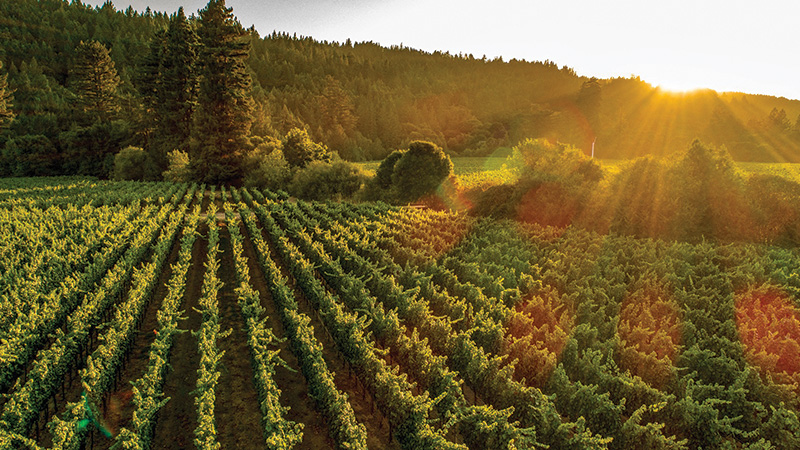
A longtime leader in sustainability, Napa Valley’s Cakebread Cellars was the second winery to become Napa Green certified. The winery practices integrated pest management by welcoming falcons to control bird populations, as well as experimenting with vermicompost (using worms to facilitate the decomposition process). Cakebread also uses electric in addition to gas-powered tractors in its vineyards, and increases energy efficiency in the winery by using microturbines.
Viña Vik
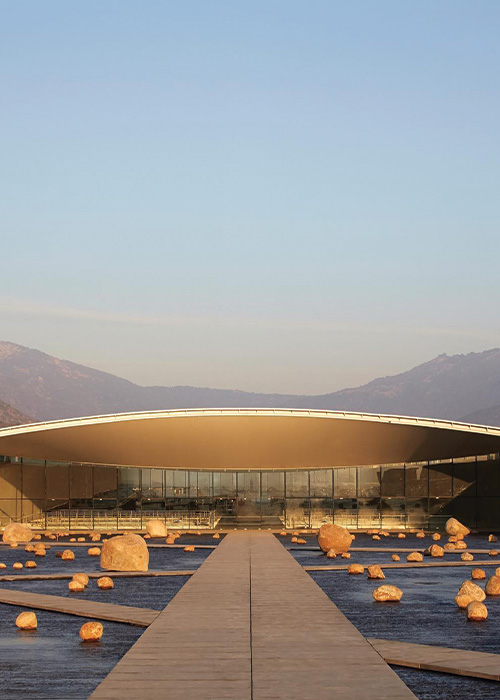
Located in Millahue, Chile, Vik places an emphasis on forward-thinking winemaking techniques, following Aristotle’s theory of holism. Working toward carbon neutrality, Vik has planted hundreds of new trees in the forests surrounding its vineyards. In the winery, Vik uses free cooling in lieu of environmentally unfriendly air conditioning, as well as solar power and natural insulation. It also forgoes artificial lighting for a translucent roof, preserving energy while promoting efficiency.
Kono Winery
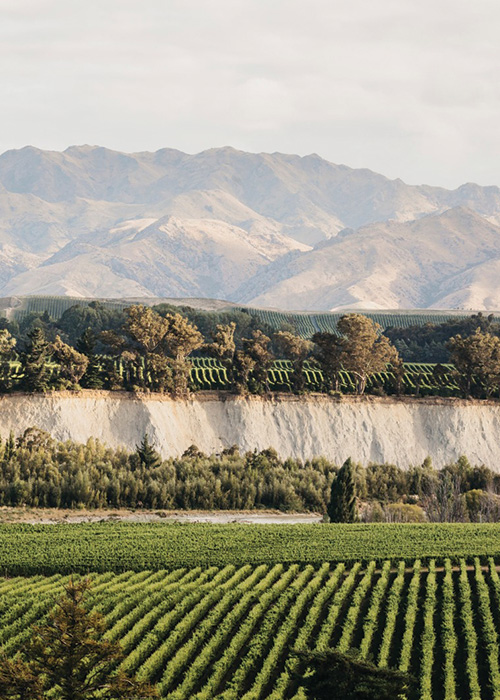
Owned by indigenous Māori people in New Zealand, Kono’s focus on sustainability represents more than just a desire to follow recent trends. The winery is guided by Te Pae Tawhiti, a Māori 500-year plan for a sustainable business that honors the land on which its beloved grapes are grown. According to the brand’s website, “This is not only because our moana and whenua deserve to be healthy in their own right, but also because the wellness of our people is intrinsically linked to the wellbeing of our environment.”
Tablas Creek
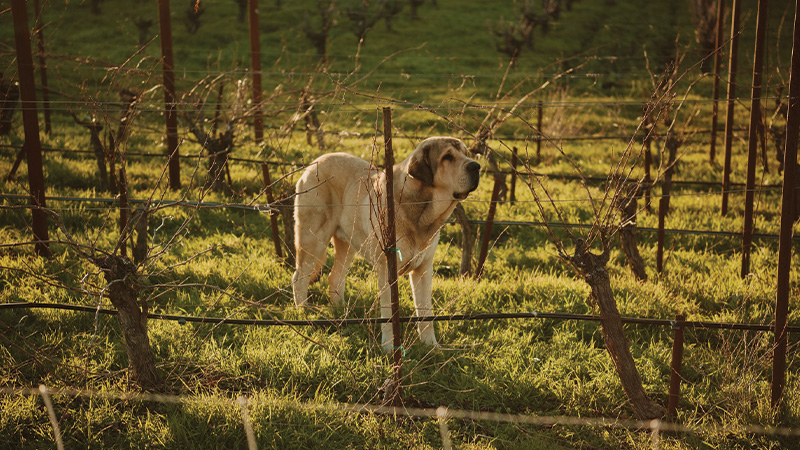
Renowned Paso Robles, Calif.-based winery Tablas Creek may be best known for its delicious Rhône-style wines, but the winery is also a leader in biodynamic winemaking. Gaining an organic certification in 2003 and using animals rather than chemicals to fertilize its vineyard soils, Tablas Creek received its official biodynamic certification in 2017 and became the country’s first-ever Regenerative Organic Certified™ vineyard in 2020.
